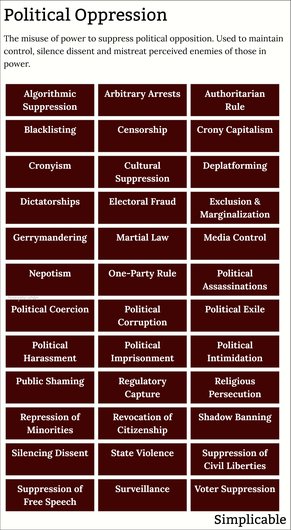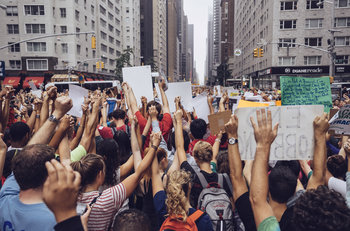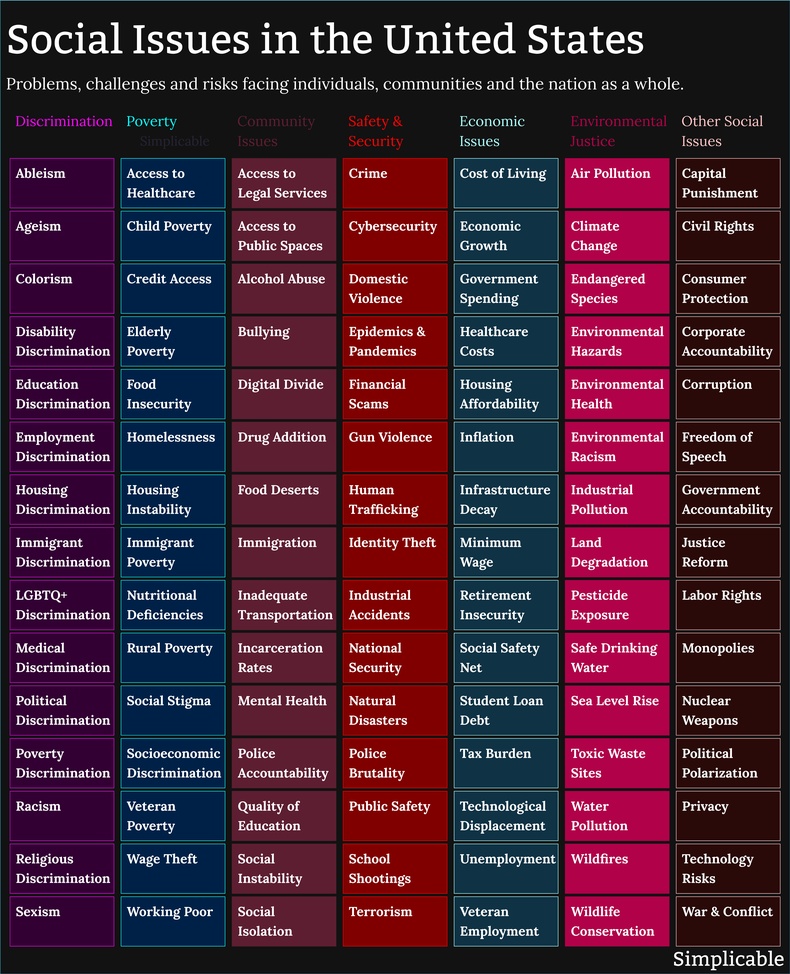
Discrimination
Unfair treatment of people based on aspects of their appearance, identity or situation such as health status. This can negatively impact an entire community over multiple generations. For example, a 2019 survey of black adults in the United States found that 60% reported unfair treatment by police, 57% reported discrimination in employment and 32% reported discrimination in healthcare settings (Bleich, Sara, et al, 2019).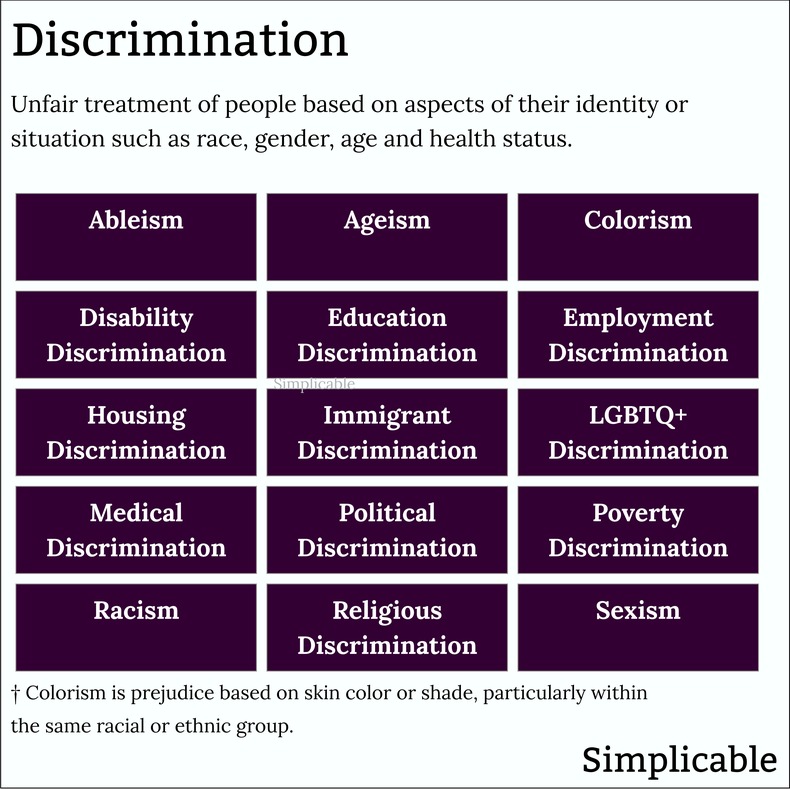
Poverty
The official poverty rate in the US was 11.5 percent in 2022 with 37.9 million people in poverty according to the United States Census Bureau. Poverty creates a large number of issues in areas such as housing, education, employment and health. This can be described as a poverty trap whereby issues that are easily handled when you have sufficient resources become major problems for those experiencing poverty.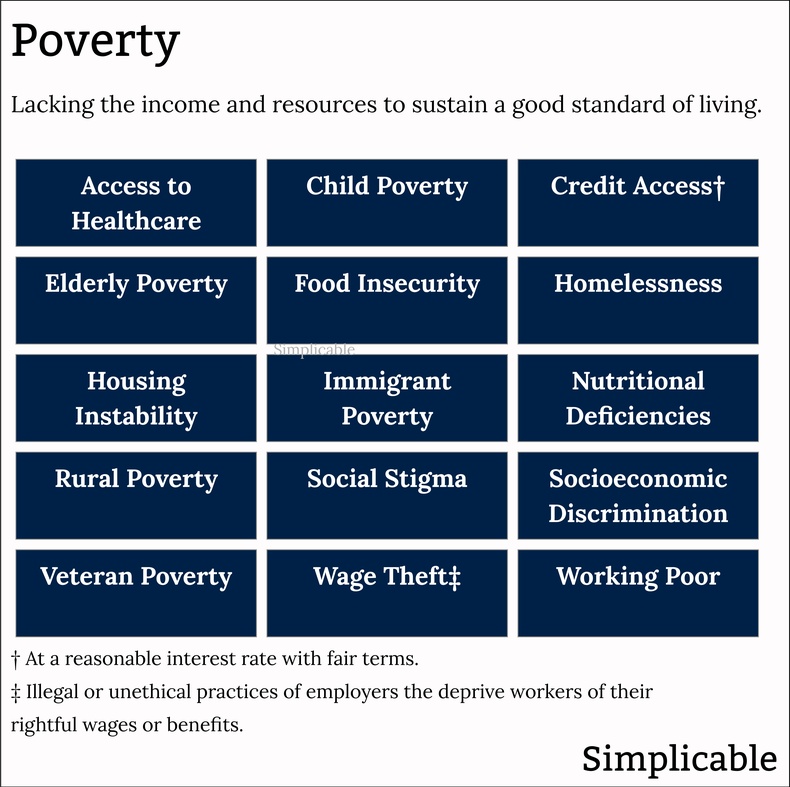
Community Issues
Issues that impact a group of people such as an ethnic group or people living in a particular city, neighborhood or rural area. There is often a large gap in quality of life such as longevity from one community to another. For example, the gap in life expectancy between the richest 1% and poorest 1% in the United States is 14.6 years for men and 10.1 years for women (Chetty, Raj, et al, 2016).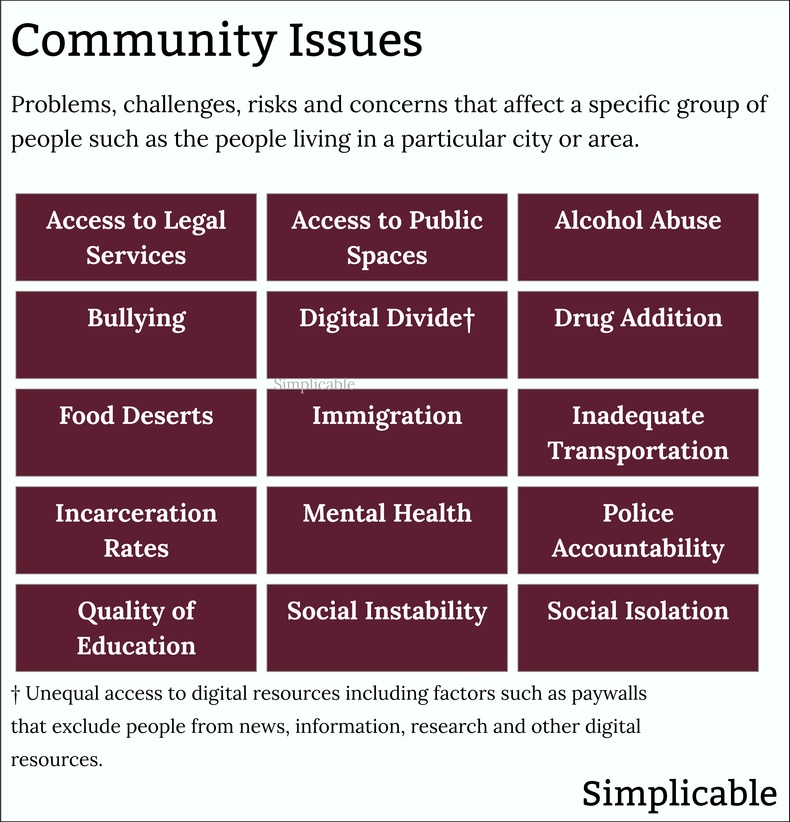
Safety & Security
Issues related to the safety and security of people, communities and the nation as a whole. For example, 47,428 people in the United States died from gun related injuries in 2022 (Gun Violence Archive, 2024). This can be compared with EU countries that have an estimated 6,700 gun related deaths each year (Flemish Peace Institute, 2015). The population of the EU is around 448 million people. This is considerably higher than the United States at around 333 million people.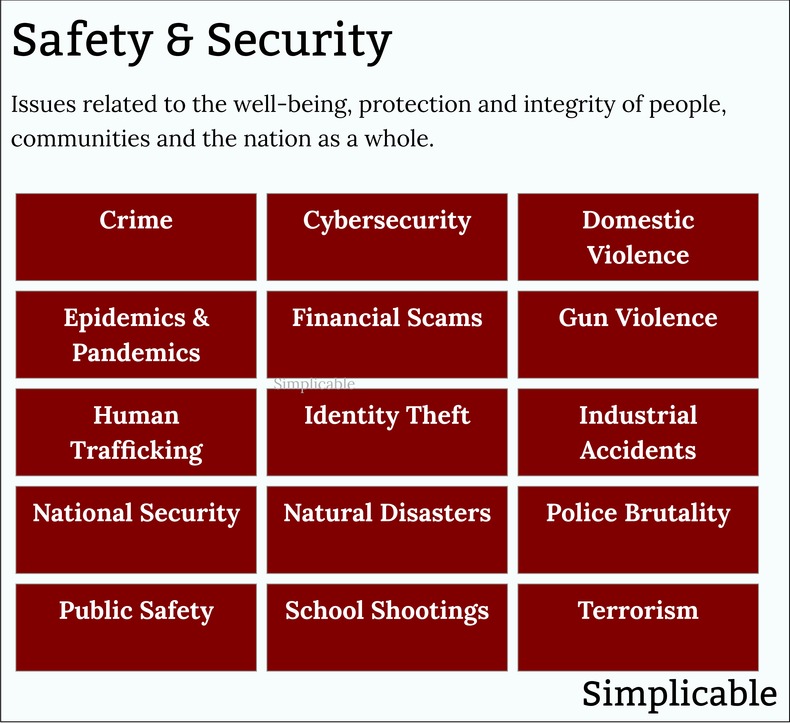
Economic Issues
The United States is the world's largest economy and supports an incredible depth of economic opportunities. However, people, families, households, communities, cities and regions in the United States can face economic hardships. For example, aggressive tax strategies pursued by wealthy individuals that aren't available to the middle class can begin to resemble regressive taxation (Alstadsaeter, Annette, et al, 2019).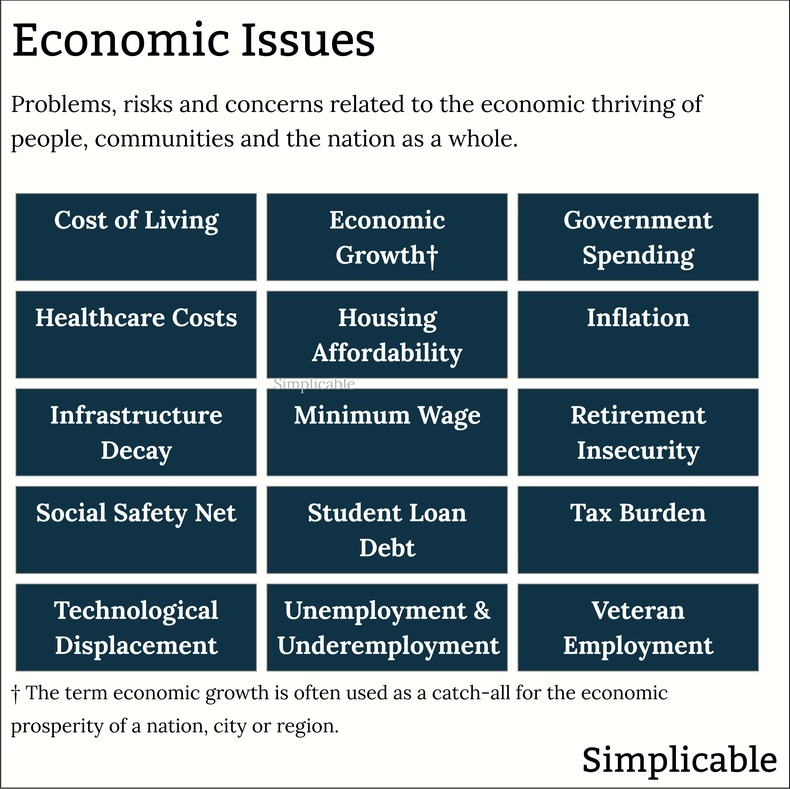
Environmental Justice
Environmental justice concerns unfairness in the distribution of environmental benefits and burdens. At the top level, this can be viewed as one generation destroying common natural heritage and systems for all subsequent generations. Environmental justice also looks at how the wealthy may monopolize environmental benefits such as a beautiful beach while marginalized communities may face dangerous environmental conditions such as living and working near environmental hazards.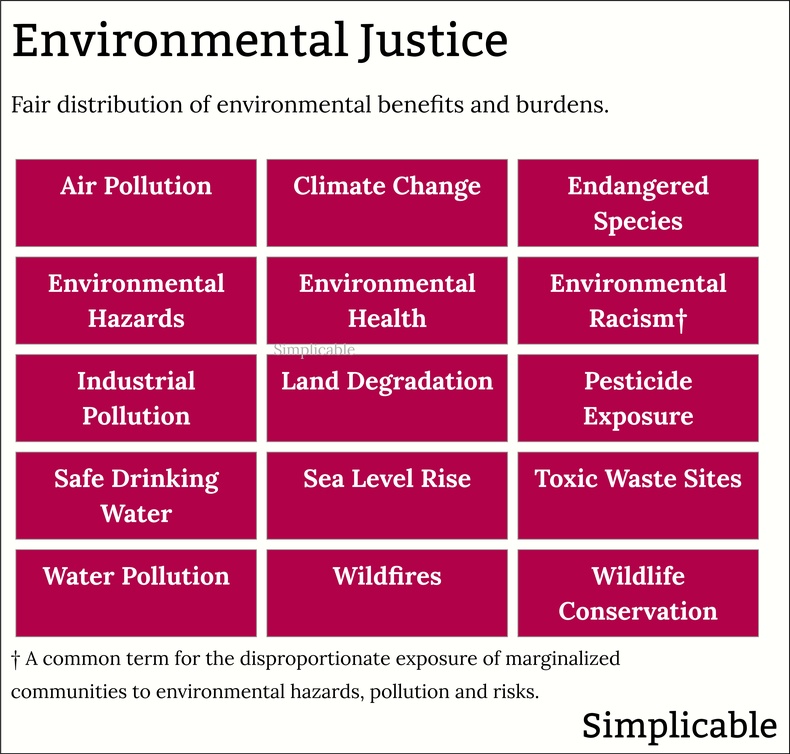
Other Issues
Other issues including highly specific issues such as capital punishment and general issues such as dissatisfaction with government.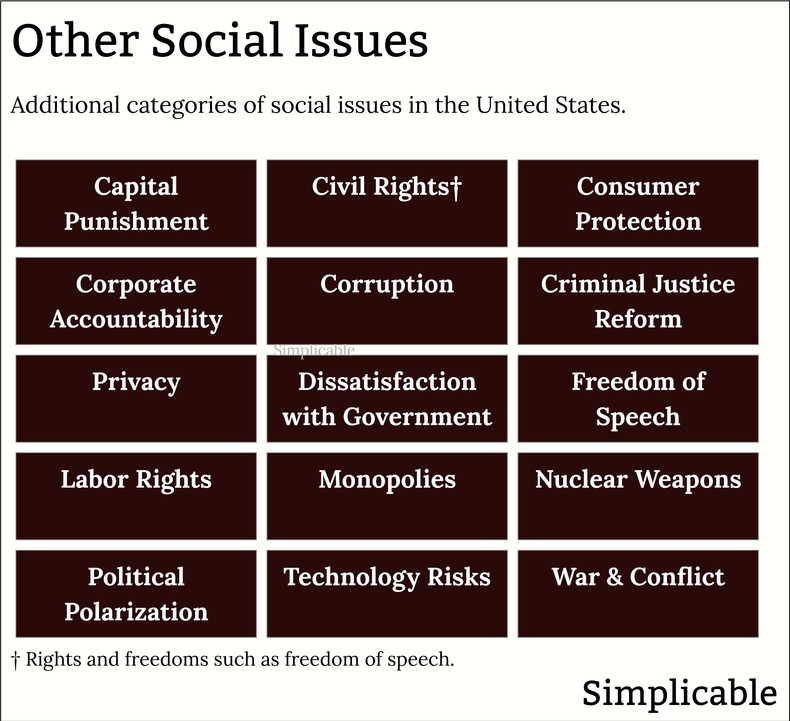
Choosing an Issue
Choosing a social issue to research can consider the relevance and impact of the issue. It is common to choose issues that have been in the news or that are a frequent topic of debate. In some cases, it is possible to choose an issue with which you have a personal passion, connection or experience. Lastly, carefully consider the scope of your issue. If your issue is too broad, it may be difficult to research and fully cover. If it is too narrow, it may be difficult to find sources. The following are a few basic considerations in choosing a social issue to research:UniquenessIs everyone else covering the same issue?RelevanceIs the issue relevant to your assignment or goal? Personal ConnectionAre you interested in the issue? Do you have any direct experience or connection to it?ScopeIdentify some aspect or angle on the issue that is interesting, unique and researchable.Ethical ConsiderationsIs the issue an ethical minefield that is difficult to discuss? Are you comfortable covering the difficult aspects of the issue?ResourcesPerforming an initial check to confirm you can find some sources to support your research.Researching Social Issues
Researching social issues typically begins by looking at causes, effects and overall impact of an issue including what groups or regions of the country may be most affected. You can also compile recent news about the issue and consider any personal connections to the issue you may have. It is also common to develop context such as the historical roots of the issue and comparisons to other countries. The following are possible categories of information to gather for a social issue.Advocacy and Activism | Causes |
Comparison | Demographics of the Issue |
Geographic Variations | Global Perspective |
Government Policy | Historical Context |
Impact of the Issue | Major Viewpoints |
Media Coverage | Personal Insight |
Possible Solutions | Public Opinion |
Recent Developments |








